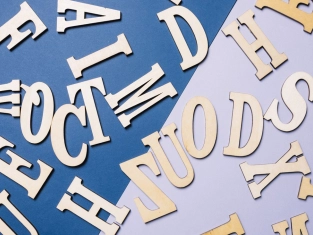by PushtoLearn
Phrasal Verbs with Get
Table of Contents
Phrasal Verbs with Get Exercises
These exercises focus on Phrasal Verbs with Get
List of Phrasal Verbs with Get
|
Phrasal Verb |
Definition |
Example |
|
Get about |
Move around; travel |
After the accident, it was hard for her to get about. |
|
Get above |
Think you’re better than others |
Don’t get above yourself just because you won the prize. |
|
Get across |
Communicate effectively |
He couldn’t get his point across during the meeting. |
|
Get across to |
Make someone understand |
The teacher struggled to get the concept across to the students. |
|
Get after |
Pursue; chase |
The coach told the players to get after the ball. |
|
Get ahead |
Make progress |
She worked hard to get ahead in her career. |
|
Get ahead of |
Surpass; overtake |
He managed to get ahead of his competitors. |
|
Get along |
Have a good relationship |
They get along well despite their differences. |
|
Get along in |
Make progress in a specific area |
She’s getting along in her language studies. |
|
Get along with |
Have a friendly relationship |
He doesn’t get along with his neighbors. |
|
Get around |
Avoid or bypass something |
They found a way to get around the problem. |
|
Get around to |
Find time to do something |
I’ll get around to fixing the car this weekend. |
|
Get at |
Reach; imply |
I can’t get at the top shelf without a ladder. |
|
Get away |
Escape |
The thief managed to get away from the police. |
|
Get away from |
Leave a place or situation |
I need to get away from the city for a while. |
|
Get away with |
Do something wrong without punishment |
He got away with cheating on the test. |
|
Get away! |
Express disbelief or surprise |
Get away! I can’t believe you’re here! |
|
Get back |
Return |
When will you get back from the store? |
|
Get back at |
Take revenge |
She wants to get back at him for lying. |
|
Get back into |
Start doing something again |
He’s getting back into playing the guitar. |
|
Get back to |
Respond or return to someone |
I’ll get back to you later with the details. |
|
Get back together |
Reunite |
They decided to get back together after their breakup. |
|
Get behind |
Fall behind schedule |
I got behind on my homework last week. |
|
Get behind with |
Delay progress in something |
He’s getting behind with his rent payments. |
|
Get by |
Survive financially or physically |
They manage to get by on a small salary. |
|
Get by on |
Survive using minimal resources |
He gets by on just a few hours of sleep. |
|
Get by with |
Manage using limited resources |
We can get by with what we have for now. |
|
Get down |
Depress or discourage |
The gloomy weather is getting me down. |
|
Get down on |
Criticize or be hard on someone |
Don’t get down on yourself for making a mistake. |
|
Get down to |
Start focusing on something serious |
Let’s get down to business and finish the report. |
|
Get in |
Enter or be accepted |
She got in to her dream university. |
|
Get in on |
Become involved in something |
He wants to get in on the project. |
|
Get in with |
Establish a friendly relationship with someone |
She’s trying to get in with the popular crowd. |
|
Get into |
Become interested in something |
He’s recently gotten into gardening. |
|
Get it |
Understand |
I don’t get it. Can you explain again? |
|
Get it off |
Remove something |
He got the stain off his shirt. |
|
Get it off with |
Have an intimate relationship |
There’s a rumor they got it off with each other. |
|
Get it on |
Start something |
Let’s get it on with the meeting. |
|
Get it on with |
Have a romantic relationship |
People think they got it on with each other. |
|
Get it together |
Organize oneself |
You need to get it together before the presentation. |
|
Get it up |
Achieve arousal |
He couldn’t get it up due to stress. |
|
Get off |
Leave a vehicle; start a journey |
We’ll get off the bus at the next stop. |
|
Get off it |
Stop talking nonsense |
Get off it, you’re exaggerating! |
|
Get off on |
Enjoy or be excited by something |
She gets off on rollercoasters. |
|
Get off with |
Escape punishment |
He got off with just a warning. |
|
Get off! |
Expression of disbelief |
Get off! That’s amazing news. |
|
Get on |
Board a vehicle |
He got on the train just in time. |
|
Get on at |
Criticize someone repeatedly |
She keeps getting on at him about his homework. |
|
Get on for |
Approaching a certain age or time |
It’s getting on for midnight. |
|
Get on to |
Start dealing with something |
Let’s get on to the next topic. |
|
Get on with |
Continue doing something |
I need to get on with my work now. |
|
Get onto |
Contact someone |
I’ll get onto the supplier about the issue. |
|
Get out |
Leave or escape |
Let’s get out of here before it rains. |
|
Get out of |
Avoid doing something |
He tried to get out of doing his chores. |
|
Get out! |
Expression of disbelief |
Get out! I can’t believe it’s true! |
|
Get over |
Recover from something |
She’s trying to get over her fear of flying. |
|
Get over with |
Finish something unpleasant quickly |
Let’s get this exam over with. |
|
Get round (or around) |
Find a way to overcome a problem |
They got round the issue by hiring more staff. |
|
Get round to |
Finally do something |
I never got round to calling her back. |
|
Get through |
Succeed in completing something |
He got through all his exams. |
|
Get through to |
Make someone understand |
I couldn’t get through to her during the argument. |
|
Get to |
Reach a point or place |
When will we get to the hotel? |
|
Get together |
Meet or gather |
Let’s get together for lunch soon. |
|
Get up |
Rise from bed or a sitting position |
I get up at 6 a.m. every morning. |
|
Get up to |
Do something, often mischievous |
What did you get up to while I was gone? |

How to Use Phrasal Verbs with Get in Everyday Conversation
Phrasal verbs are common in spoken English, so practicing them in everyday conversations will help you sound more natural. Here are some real-life examples:
-
Morning Routine: "I need to get up early tomorrow to catch the bus."
-
Social Life: "Do you get along with your neighbors?"
-
Health: "After the surgery, it took her a while to get over the pain."
-
Travel: "We’ll get off the train at the next stop."
Common Errors with Get Phrasal Verbs
-
Confusing meanings:
Students often mix up similar phrasal verbs, like get off and get out. -
Correct: "We get off the bus at this stop."
-
Incorrect: "We get out the bus."
-
Wrong particle:
Using the wrong particle can completely change the meaning. -
Correct: "She got over her fear of flying."
-
Incorrect: "She got on her fear of flying."
-
Tense mistakes:
Remember to conjugate the verb get correctly: -
Present: I get up.
-
Past: I got up.
-
Future: I will get up.
Tips for Learning Get Phrasal Verbs
-
Practice in context: Make sentences with each phrasal verb to understand its usage.
-
Use flashcards: Write the phrasal verb on one side and its meaning and example on the other.
-
Watch English shows: Listen for phrasal verbs in real-life dialogues.
-
Group by themes: Learn phrasal verbs related to specific situations, like travel or emotions.
FAQ
What is a phrasal verb with "get"?
A phrasal verb with "get" is a combination of the verb get and a particle (like "up," "over," or "off") that changes its meaning. For example, "get up" means to rise from bed.
How can I remember "get" phrasal verbs?
Practice them in context, use flashcards, and group them by topics like travel, relationships, or daily routines.
What is the difference between "get off" and "get out"?
"Get off" is used for public transport (e.g., bus, train), while "get out" is used for smaller, private vehicles (e.g., car, taxi).
Are phrasal verbs formal or informal?
Most phrasal verbs, including those with "get," are informal and commonly used in spoken English.
Why are phrasal verbs hard to learn?
Their meanings often differ from the individual words, and they can’t always be translated directly into another language, which makes them challenging for ESL learners.
